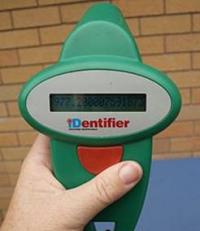Hot Weather Hazards for Pets
Summer is here: Fun, sun, and plenty of time outdoors enjoying it all. Of course, with all those pleasantries come hazards as well, especially for our furry friends.
Have fun but let’s play it safe! Here are some important tips to keep everyone healthy and safe!
Heat stroke
Everyone knows you shouldn’t leave a pet in a closed-up car, but is it really that dangerous? According to a report by the Department of Geosciences from San Francisco State University, temperatures rise rapidly in a closed car. Cracking the window doesn’t help at all.
When the temperature outside is 80°, inside a closed car it will get to 99° within 10 minutes, to 109°within 20 min and it just gets worse! It won’t take long for your pet to be in serious trouble.
NEVER leave your pet in the car, not even just to run in for a quick minute. Even a short delay could be deadly!
Pets can’t cool off as well as we do so they are much more prone to heat stroke. Take your walks in the early morning or late evening when it’s cooler for both of you.
If your pet is panting heavily, having trouble breathing, has a seizure, can’t walk straight, or collapses get to your veterinarian immediately. If symptoms are milder, you can wet him down at home with cool water (not cold). If using a hose run the water to let hot water out first. Apply the cool water to areas of thin skin, like his abdomen and groin, and limbs. You can also apply rubbing alcohol to the paw pads to help some of the heat evaporate. It is also important to note that sometimes when pets suffer from heat stroke, during the cooling process they can cool down too much, causing hypothermia.
If his panting doesn’t slow down within a short time, or if he develops any additional signs such as lethargy, vomiting, or diarrhea, take him to the vet immediately.
Outdoor pets
Provide a shaded area for your pet to stay outdoors as well as plenty of fresh water. Some dogs will dig holes to lie down in the cooler dirt. Remember, hot asphalt can burn your dog’s pads!
Water dogs
Dogs need life jackets just as much as people do. Some dogs aren’t great swimmers, and they can’t always make it back to shore. The jackets also come with a handy handle to help you haul your dog back into a boat or out of the water!
At the ocean, don’t let your dog drink the salt water. If your dog is caught in an undertow and goes out into the water, DO NOT go in to try to rescue him. Many dogs will be able to get back on their own and the risk of you drowning is too high.
Swimming pools can also be hazardous. Dogs that fall into them often can’t get out. Covers on pools can be a threat, as the dog doesn’t realize it’s not solid. My brother lost a dog that slipped under the cover and they didn’t realize it until it was too late. Get a pool alarm to alert you if something goes into the pool.
Poisons
Chemicals used on lawns can be poisonous to our pets. Wash your pet’s paws after being outside if they may have walked on treated lawns. Car chemicals can be a problem, especially antifreeze. Clean up any spills promptly and thoroughly.
Many plants are poisonous, especially lilies, and they poison cats more than dogs. Poisons used to kill rodents, slugs and snails can be deadly to your pet. Keep all of them out of reach from curious pets.
Sunscreen
This isn’t just for humans! Light colored pets, especially those with pink noses, are at risk of sunburn as well as skin cancer. If your pet is spending time outdoors, protect the thin coated, non-pigmented areas. Use a pet sunscreen that is safe if your pet licks it. Make sure the product is safe for cats.
High-rise syndrome
This happens to cats (rarely dogs) that fall out of windows. It usually occurs during warm weather. People in apartment buildings have windows open and the cat lies in the window pushing against the screen. They could also jump at a bug on the screen. The screen gives way and the cat goes flying out the window!
The extent of the injury depends on the distance the cat falls. Higher than six or seven floors is actually better.
Cats will often survive that height with few serious injuries due to their ability to flatten their body to work like a parachute. They need the distance to position themselves correctly and to slow down.
The cure for this is to make screens secure or keep cats away from an open window.
Pesky bugs
Mosquitoes are so annoying! Pets don’t usually get the itchy bumps we do; however, some pets will react to the bites. Cats can develop a crusty area over the nose that looks quite nasty and you wouldn’t think it was due to mosquito bites. It’s an allergic reaction and the cat isn’t necessarily bitten on the nose.
Mosquitoes also spread heartworms to dogs and cats. There are repellants safe for pets; however, the best option is to keep cats indoors. Treat all your pets regularly with a heartworm preventive medicine even if they stay indoors.
Fleas and ticks come marching out in full force during warm weather. Protect your pets every month. You should treat year-round in most parts of the country. Ask your veterinarian what she recommends.
Summary
Have fun during the summer but take precautions to keep your pets safe. Make sure your pets have microchips to identify them in case they get lost and that they are up to date on their rabies vaccination.
This is especially important if you are traveling with your pets. I have found more than one lost dog by my house that was visiting from out of town. The animal control officer said it was quite common for visiting dogs to get lost.
Cats are much less likely to encounter many of these hazards. They rarely go for car rides, usually don’t like to swim and don’t play hard in hot weather. They take it easy and stay where it’s cool.
However, dog parents need to be careful. You can avoid most problems with just a few simple steps. Our pets count on us to keep them safe!
All articles are reviewed and maintained by whiskerDocs team of veterinary experts.





